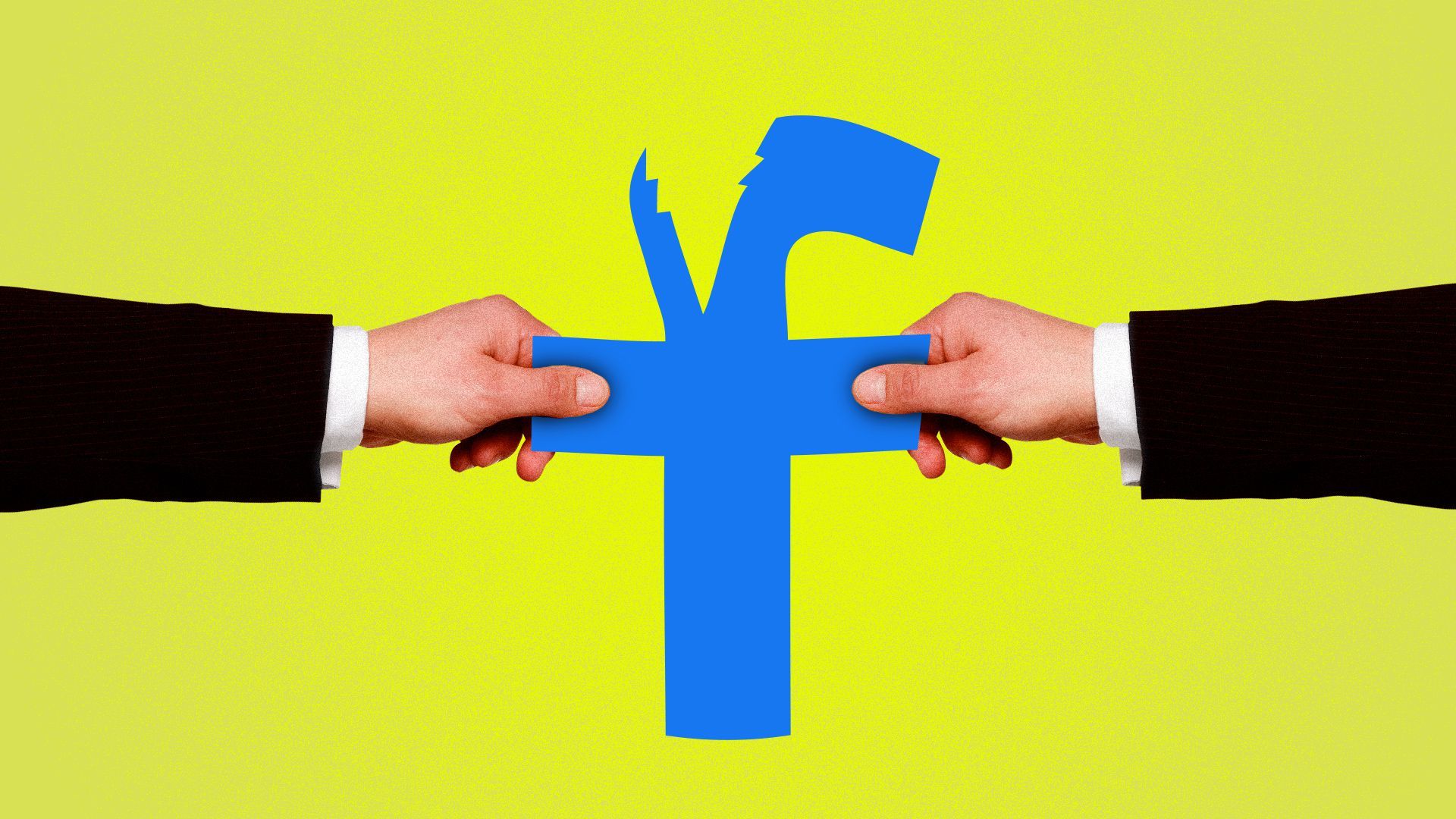Facebook's dwindling online center
Add Axios as your preferred source to
see more of our stories on Google.

Illustration: Aïda Amer/Axios
Facebook and other social media platforms aim to serve users across the political spectrum, but as America's tribal partisan split deepens after a divisive election, more users may start choosing to stick with their own kind.
Why it matters: No competitor will be able to match Facebook's size any time soon, or maybe ever. But the nation's sharp schism is reducing the company's options for keeping users on both left and right engaged — and seeding the online landscape with potential alternatives.
Catch up quick: For years President Trump effectively used Twitter as his megaphone and Facebook as a source of fundraising. But now his supporters view both platforms' campaigns against election-related misinformation as censorship. Meanwhile, Democratic critics argue that the companies bend rules too far to placate the right.
What's next: Parler, a still-tiny Twitter-like social network that touts itself as "bias-free" and has become a haven for conservative platform immigrants, hit the top of the App Store charts in the days following Trump's election loss.
- Parler is no threat to Facebook at the moment, and neither are its rival alternative social networks.
- But one or another of them could easily pick up momentum, particularly if Trump smiles on it or moves to it.
Trump, already contemplating a 2024 run, could spend the next four years fighting battles on Twitter and Facebook. But he might also try to promote alternatives to them, perhaps as part of a long-rumored larger "Trump TV"-style media project, and particularly if he gets thrown off Twitter, which is more of a possibility once he leaves office.
Yes, but: One reason Parler and other conservative networks like Gab have yet to gain critical mass is that they don't offer key influencers a path to making lots of money (yet).
- It's hard for a platform to help people with huge followings monetize their social media presences when they're surrounded by inflammatory content.
Between the lines: Tech platforms could be facing a transition like the one TV news went through over the last 25 years, as broadcast networks that catered to the American center lost ground to cable news channels that drummed up viewers by taking sides.
The big picture: Facebook has little interest in taking sides, and would prefer to continue providing a playing field on which both right and left vie for attention, buy its ads, and feed its profits.
- But the creators of, and participants in, conservatives' alternate media reality look increasingly unwilling to keep playing that game.
- The bitterer the post-election fight becomes, the more likely it is that Facebook will be forced to choose between becoming the Fox News of social networks — or watching as someone else builds it.
Our thought bubble: Facebook and social media have been criticized for allowing users to build their own echo chambers and filter bubbles where they only communicate with like-minded people.
- But the dissatisfaction with these platforms right now comes from people who no longer want to share the same social space with their political opponents.
- They're not looking to leave the echo chamber behind; their goal is to seal it more tightly.
The bottom line: Facebook remains ubiquitous because it helps people connect with friends and family — who share political news as one among many topics. For now, its would-be competitors don't offer any kind of connection beyond an all-politics-all-the-time feed, and that's likely to limit their appeal.
